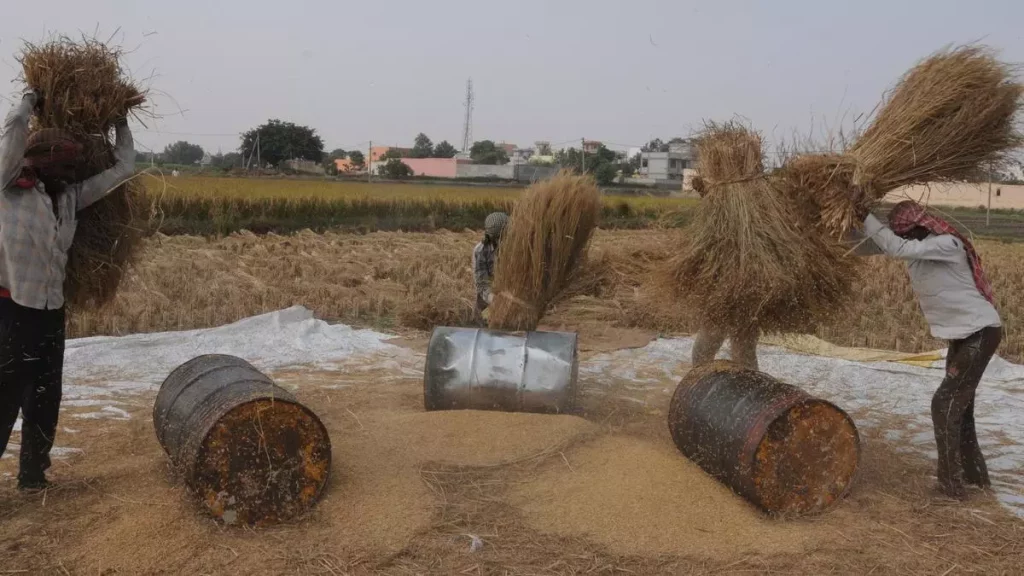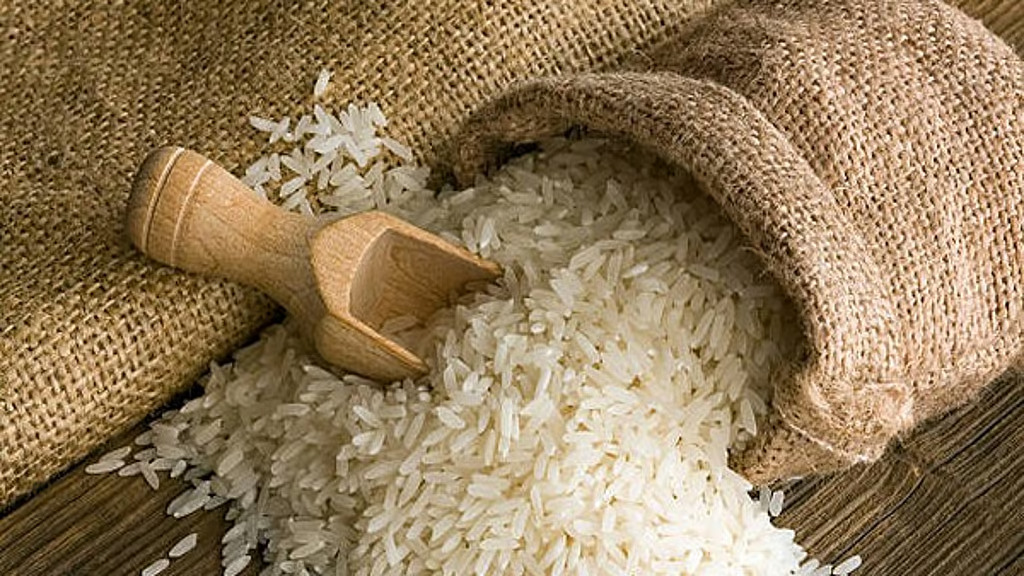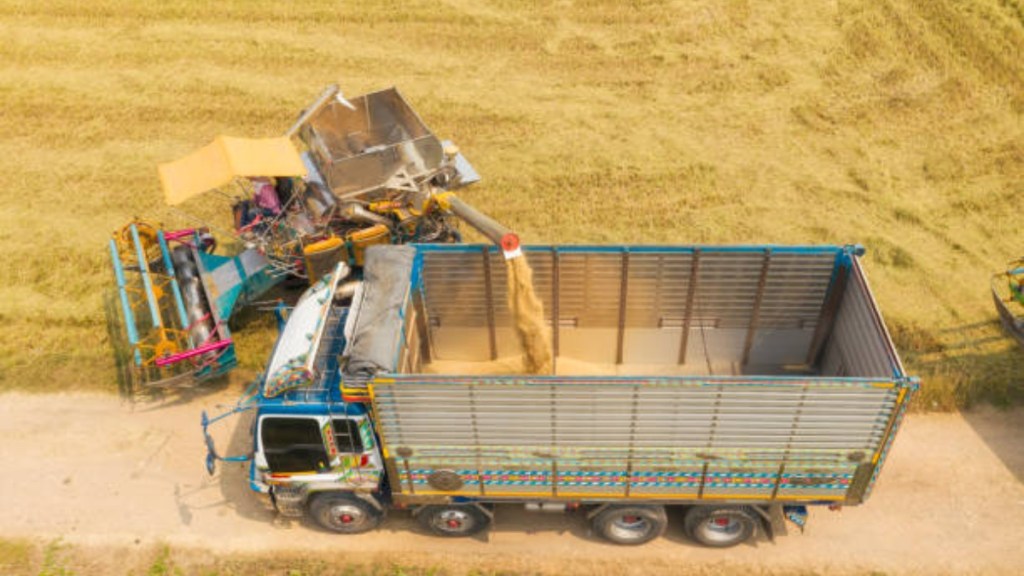Tags
Set to sign FTA with India and give basmati GI tag, EU plans to protect domestic rice industry
Proposes to impose barriers to new players in market, hike security deposit for default

The GI tag given to basmati rice by the Indian authority recognises Punjab, Haryana, Uttar Pradesh, Himachal Pradesh, Uttarakhand, Jammu and Kashmir and Delhi as the growing regions | Photo Credit: KAMAL NARANG
The European Union has come up with a set of proposals to protect its domestic rice players even as it prepares to provide a Geographical Indicator (GI) tag for Indian basmati rice and signing a free trade agreement (FTA) with New Delhi, documents viewed by businessline show.
The proposals include repealing regulations for the import of basmati rice, increasing security deposit, electronic invoicing, e-authentication, and online consumer protection. Two major European players who will likely benefit from these are Spanish firm Ebro Foods, which owns the premium basmati rice brand Tilda, and Italian firm Euricom.
The proposals have been submitted by the European Commission to the EU Council, and it is expected to be ratified and implemented. One of the proposals is Article 4, which erects a barrier to any new basmati player who has to obtain an import licence after acquiring two years of experience in rice.
Preventive clause
European millers mainly import husked basmati rice, and over the past two decades, the European rice milling industry and brands have consolidated. Once basmati rice gets protected GI (PGI) from the EU — the application has been pending since July 2018 — a branded basmati player from India intending to set up a mill to avail of the zero import duty concession will have to wait.
This means that if an Indian firm buys a mill in Europe, it will lose its market and margin in view of the two-year mandatory waiting period.
Article 5 of the proposed regulation bars transferring import licence among traders. “Even if an Indian company technically takes over an experienced trading company, its experience is under question. Article 5 is a preventive clause to ensure that Article 4 is not circumvented,” said S Chandrasekaran, a GI expert who has authored the book “Basmati Rice: The Natural History Geographical Indication.”
EU industry fears
The initiative is aimed at protecting European domestic mills and European basmati rice brands. Perhaps, Chandrasekaran said, the European industry fears that leading and famous Indian brands will enter the European Union after the EU signs an FTA with India and PGI for the fragrant rice is registered there. The gestation period is a primary protection for European Basmati players.
“The European Commission move is to preserve the status quo of local players and brands in the mainland Europe basmati market. This signals the serious intent of the European Commission in protecting its domestic interests, which also indicates the gaps and vulnerability,” the GI expert said.
Having said that, he said, beneficiaries of this policy bring traces of trans-Atlantic history in terms of trade. “India needs to prioritise its focus and intent in the FTA and GI agreement with the EU in view of overall national interest instead of mere commercial interests,” Chandrasekaran said.
Head note 7 features
The proposals’ history is traced to the 1992 Dunkel pact, when the EU, in a pact with the US, agreed to insert in the GATT (General Agreement on Tariffs and Trade) schedule a special “Head note 7” for rice, resulting in a ceiling price for imported husked rice.
This ceiling for Japonica rice was 188 per cent of the intervention price for paddy, while for Indica rice it was 180 per cent of the intervention price, both irrespective of the price or quality of the rice concerned.
This led to higher prices for rice being levied a lower duty. As per “Head note 7,” the EU would impose duty on rice imports if a consignment’s price was higher than the union’s ceiling price.
Since basmati rice prices (aromatic Indica rice from India and Pakistan) were on average €250/tonne higher than the world market reference prices to be used for calculating the duty, a special abatement of an equivalent amount had to be granted to this rice. As a result, basmati imports increased from about 40 000 tonnes in 1994–95 to 100,000 tonnes in 1998–99, entering at low or zero duty.
Basmati escapes notice
Due to this ceiling, between July 1995 and February 2000, the applied import duty for husked Indica rice came down from around €390 a tonne to around €200. This was €89 below the agreed fixed tariff for 1999–2000.
Then, the EU did not notice the fact that Basmati rice was priced higher than its ceiling price. With the implementation of the General Agreement on Tariffs and Trade (GATT) and the Uruguay round of the World Trade Organisation (WTO), the path was paved for basmati rice to enter the community at zero import duty.
The EU also imposed €264 a tonne as duty on basmati rice from India and Pakistan but listed eight varieties of the long-grained rice for zero duty. These included Pakistan’s Super Basmati, allowed after prolonged discussions, and India’s Pusa Basmati.
Increasing shipping risks
Another proposal is the increase mooted in the security deposit for any consignments entering the EU. Till now, it has been collecting a deposit of €30 per tonne. This is now being raised to €70, which increases the risk of the sub-continents losing money in case of a forfeiture.
The risk of forfeiture will increase as the EU will be digitising even non-customs formalities of shipments from 2025. The forfeiture may be for any adulteration or wrong authenticity of the fragrant rice.
“The Commission intends to digitise the whole process by establishing an electronic system for DG AGRI non-customs formalities (ELAN) based on TRACES.NT and linked to the EU Single Window Environment for customs … ELAN will define the digital processes in the future and will allow users to issue, store, and retrieve the necessary documents… After defining those digital processes, the legal provisions of the two Regulations will be amended accordingly,” the EU Council said in its proposal.
Issue of M.P. rice
This provision will bring in traceability of rice right from the farm where it is cultivated. This will create problems with regard to the GI tag for Indian basmati rice.
The GI tag given to basmati rice by the Indian authority recognises Punjab, Haryana, Uttar Pradesh, Himachal Pradesh, Uttarakhand, Jammu and Kashmir and Delhi as the growing regions. However, the fragrant rice grown in these regions sometimes runs into pesticide residue issues.
So, many exporters are sourcing basmati rice from Madhya Pradesh, which is not recognised as a growing region; the State’s case for GI tag is pending with the Supreme Court. With the decision to digitise, the EU will now have the upper hand to deny market share to rice from the central Indian State.
Thus, the EU has come up with a strategy to overcome any situation that will affect its trade and industry, said Chandrasekaran. “India will also have to be vigilant while discussing these issues and come up with its own protection policies,” he said.
https://www.thehindubusinessline.com/economy/agri-business/set-to-sign-fta-with-india-and-give-basmati-gi-tag-eu-plans-to-protect-domestic-rice-industry/article67631492.ecePublished Date: December 13, 2023







